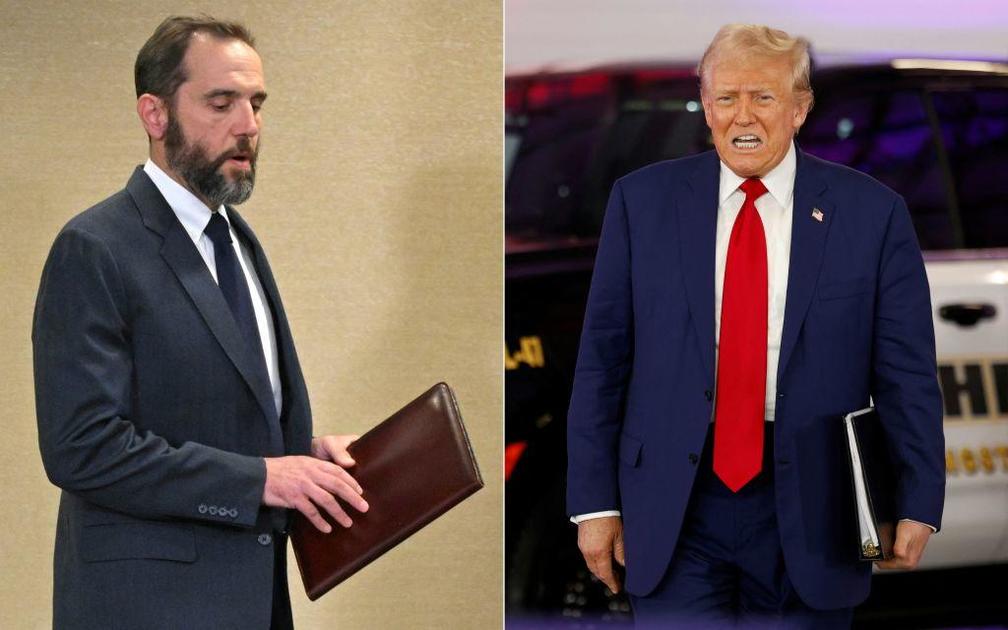A federal appeals court in Atlanta made a significant decision on Thursday regarding the release of a portion of special counsel Jack Smith’s final report detailing his investigation and prosecution of President-elect Donald Trump. The report focused on an alleged plan to subvert the transfer of power after the 2020 election. The U.S. Court of Appeals for the 11th Circuit denied a request from Walt Nauta, an aide to Trump, and Carlos de Oliveira, the former property manager at Mar-a-Lago, who were charged for their involvement in obstructing a separate federal investigation into Trump’s handling of sensitive government records.
The 11th Circuit had previously granted Smith’s request to drop Trump from the case following his reelection to a second term in the White House. This was due to a Justice Department policy that prohibits the prosecution of a sitting president. However, federal prosecutors continued to pursue the appeal of a lower court decision that dismissed the charges against Nauta and de Oliveira on the grounds that Smith was unconstitutionally appointed.
Smith submitted a two-volume final report to Attorney General Merrick Garland on Tuesday evening. The first volume detailed the prosecution stemming from the 2020 election, while the second volume focused on the president-elect’s alleged mishandling of classified documents after leaving office in 2020. Garland has vowed to make all special counsel reports completed during his tenure as attorney general available to the public. He has followed through on this promise, including after the investigation into President Biden’s handling of classified documents.
Despite this commitment to transparency, lawyers for Nauta and de Oliveira sought to block the release of Smith’s report, arguing that it could unfairly prejudice potential future criminal proceedings against them. They asked the 11th Circuit and U.S. District Judge Aileen Cannon, who oversaw the documents case, to prevent the Justice Department from making the report public. Cannon agreed to temporarily block the report’s release until the 11th Circuit resolves the matter. Her order remained in effect for three more days, pending any action by the Justice Department to seek relief.
The Justice Department declined to comment on the matter, while a spokesperson for Trump called for an end to the “political weaponization” of the Justice system. In its filings with the 11th Circuit, the Justice Department opposed Nauta and de Oliveira’s request to keep the report shielded from the public. However, Garland agreed not to release the portion of the report related to the classified documents case while legal proceedings involving the two defendants were ongoing.
Meanwhile, Trump’s lawyers urged Garland to remove Smith from his position as special counsel and halt the preparation and dissemination of his report. Prosecutors indicated that Garland planned to disclose the first volume of Smith’s report on the 2020 election to Congress and the public. A redacted version of the second volume, focusing on the documents case, would be made available only to the top lawmakers on the House and Senate Judiciary Committees.
Garland informed the Judiciary Committees that Smith had completed his investigation and submitted the two-volume report. He reiterated his intention to disclose the first volume to Congress and the public, but withheld the second volume to avoid prejudicing Nauta and de Oliveira’s legal proceedings. Defense lawyers urged the 11th Circuit to send the dispute back to Cannon’s court for a hearing and prevent the Justice Department from releasing Smith’s final report.
Although Trump was not directly involved in the appeal before the 11th Circuit, his lawyers submitted a brief urging the court to block the release of Smith’s report. They argued that it was a politically motivated attack aimed at disrupting the presidential transition and undermining Trump’s exercise of executive power.
The ongoing legal battle over the release of Jack Smith’s report underscores the complexities and controversies surrounding the investigation and prosecution of President-elect Donald Trump. The decision by the 11th Circuit to deny the request to block the report’s release sets the stage for further legal proceedings and potential disclosures that could have far-reaching implications for the parties involved. As the case continues to unfold, the public and lawmakers alike will be closely watching to see how it impacts the political landscape and the future of the Justice Department’s handling of sensitive government matters.









